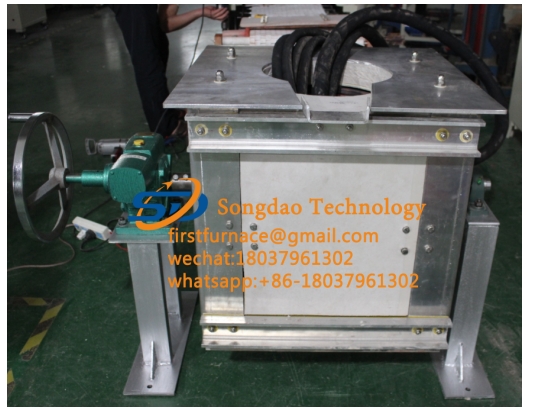- 14
- Feb
Specific application of induction melting furnace repair and replacement method
Specific application of induction melting furnace repair and replacement method
The replacement method is to use electrical components or circuit boards with the same specifications and good performance to replace a suspected but inconvenient electrical component or circuit board on the faulty 유도 용해로 to determine the fault. Sometimes the fault is relatively concealed, and the cause of the fault in some circuits is not easy to determine or the inspection time is too long, it can be replaced with the same specifications and good components. In order to narrow the scope of the fault, further, find the fault, and confirm whether the fault is caused by this component.
When using the replacement method to check, you should pay attention to it. After removing the suspected faulty electrical components or circuit boards from the original induction melting furnace, carefully check the peripheral circuits of the electrical components or circuit boards. Only when the peripheral circuits are normal, Only new electrical components or circuit boards can be replaced to avoid damage again after replacement.
In addition, because the failure state of some components (such as the capacity reduction or leakage of the capacitor) cannot be determined with a multimeter, at this time, it should be replaced with a genuine product or connected in parallel to see if the failure phenomenon has changed. If the capacitor is suspected of poor insulation or short circuit, one end must be disconnected during testing. When replacing components, the replaced components should be as same as the damaged component specifications and models.
When the fault analysis results are concentrated on a certain printed circuit board, due to the continuous increase of circuit integration, it is very difficult to implement the fault on a certain area or even on a certain electrical component, in order to shorten the fault inspection time , Under the condition of the same spare parts, you can replace the spare parts first, and then check and repair the faulty board. Pay attention to the following issues when replacing the spare parts board.
(1) Any replacement of spare parts must be carried out under power-off conditions.
(2) Many printed circuit boards have some setting switches or shorting bars to match actual needs. Therefore, when replacing spare parts, be sure to record the original switch position and setting status and the connection method of the shorting bar. Make the same settings for the new board, otherwise an alarm will be generated and the unit circuit will not work normally.
(3) Certain printed circuit boards need to perform certain specific operations after replacement to complete the establishment of their software and parameters. This point requires careful reading of the instructions for use of the corresponding circuit board.
(4) Some printed circuit boards cannot be easily pulled out, such as a board containing a working memory or a spare battery board. If it is pulled out, useful parameters or programs will be lost. You must follow the instructions when replacing it.
(5) It is strictly forbidden to use the replacement method in a large area. This will not only fail to achieve the purpose of repairing the faulty induction melting furnace, but even enter
Expand the scope of failure in one step.
(6) The replacement method is generally used when there are major doubts about a certain component after other detection methods are used.
(7) When the electrical component to be replaced is at the bottom, the replacement method should be used carefully. If it must be used, it should be fully disassembled so that the component is exposed, and there is a large enough operating space to facilitate the replacement process.
Using a spare circuit board of the same model to confirm the fault is a very effective way to narrow the scope of inspection. The control board, power supply board and trigger board of induction melting furnace often have to be replaced if there is a problem. There is no other way, because most users hardly get the schematic diagram and layout drawing, so it is difficult to achieve chip-level maintenance.

